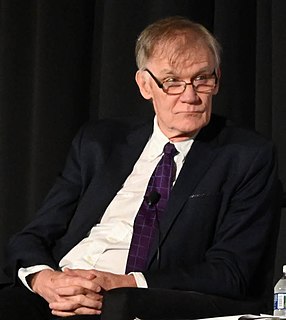A Quote by Shashi Tharoor
Much of the conventional analysis of India's stature in the world relies on the all-too-familiar economic assumptions. But we are famously a land of paradoxes, and one of those paradoxes is that so many speak about India as a great power of the 21st century when we are not yet able to feed, educate and employ all our people.
Related Quotes
For in Asia and around the world, India is not simply emerging; India has already emerged. And it is my firm belief that the relationship between the United States and India - bound by our shared interests and values - will be one of the defining partnerships of the 21st century. This is the partnership I have come here to build. This is the vision that our nations can realise together.
We must educate and train our children to compete and succeed in the 21st century. Our kids are not going to grow up to compete with children in Alabama or Mississippi. They're going to grow up to compete with kids in India, and China, all over the world; children who are learning to compete and succeed in the 21st century themselves.
In England, the population explosion can be linked very clearly with the enclosure of the commons that uprooted the peasants from their land. In India, it was the same thing: the population increased at the end of the 18th century when the British took over and Indian lands were colonized. Instead of the land feeding Indian people it started to feed the British empire. So we had destitution. Destitute people who don't have their own land to feed themselves can only feed themselves by having larger numbers, therefore they multiply. It's the rational response of a dispossessed people.
The incomparable James Walvin has done it again: he has crafted a beautifully written and deeply informed single volume history of the Atlantic slave trade and its consequences on three continents. This book is full of fresh ideas and astounding detail; it is at once great storytelling, punctuated with real people and voices, and an unblinking analysis of numerous great questions and paradoxes about the power of slavery in creating the Atlantic world over four centuries.
At this unprecedented juncture in our history I have a word for you. Do not be disheartened by our temporary defeat ; be cheerful and optimistic. Above all, never lose your faith in the destiny of India. There is no power on earth which can keep India in bondage. India will be free and, that too, soon. JAl-HIND !
Intersectionality has made an important contribution to social and political analysis, asking all of us to think about what assumptions of race and class we make when we speak about "women" or what assumptions of gender and race we make when we speak about "class." It allows us to unpack those categories and see the various kinds of social formations and power relations that constitute those categories.




































